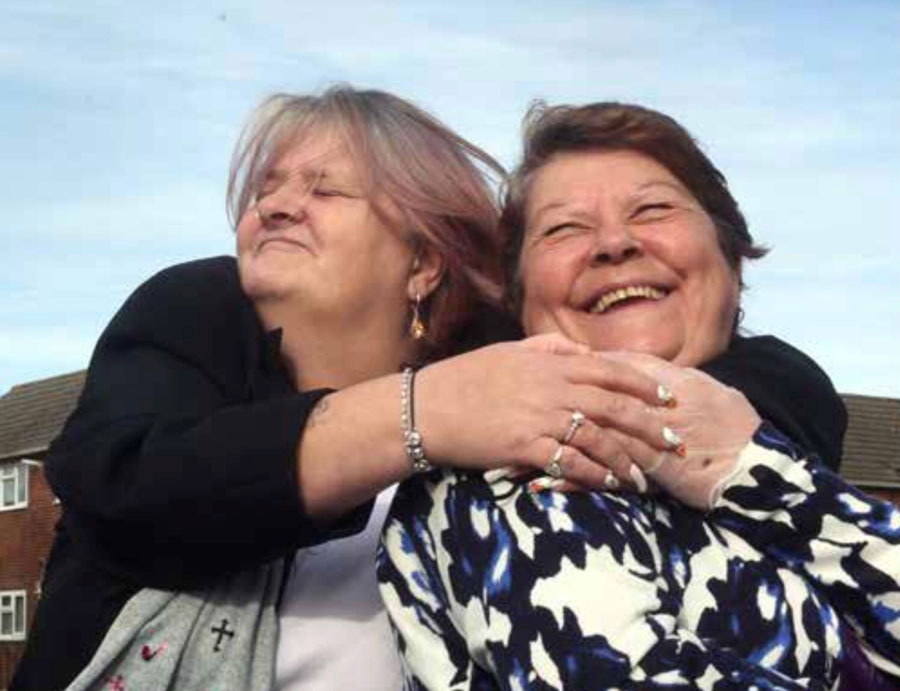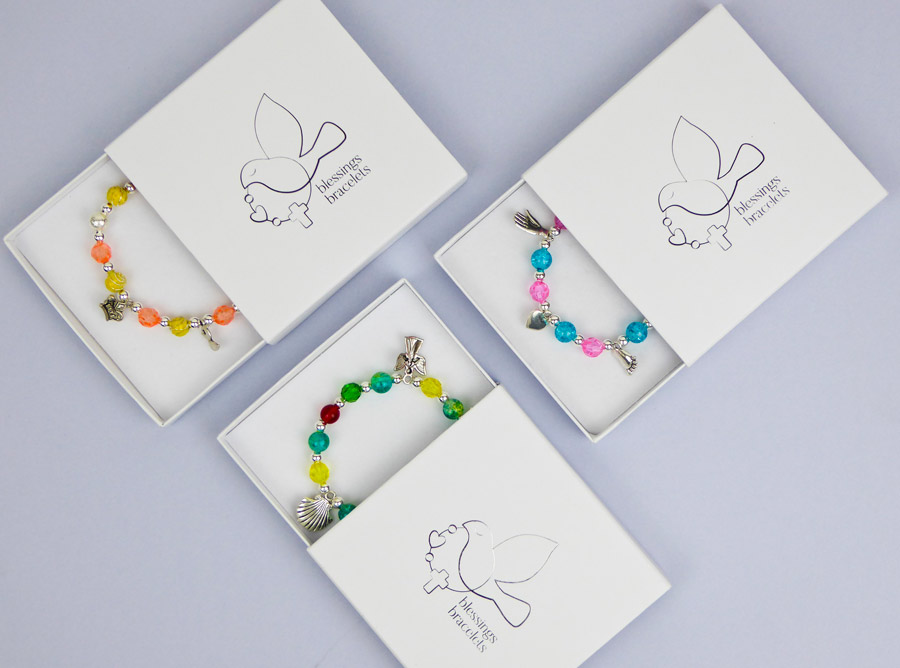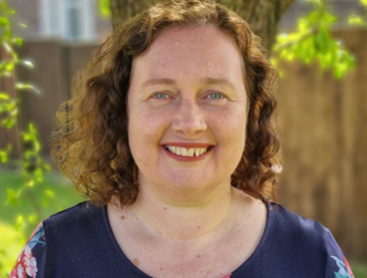Anvil journal of theology and mission
Discovering the place of shame in the gospel through witness and co-creation with female trauma survivors
by Linda Fletcher
My earliest recollection of the importance of shame to the ministry here on our estate in Swindon is from a specific moment of an Alpha course.
I was sitting in my living room with a small group of some of the most vulnerable people I had ever met – survivors of horrific childhood abuse, with trauma impacting their everyday lives – who were at early stages of faith. I was about to explain that on the cross Jesus had taken away all our sins.
I remember it as a moment where time stood still and the Holy Spirit prompted me to stop speaking immediately. I experienced this as an inner warning that to speak of sin alone in this context would do serious harm. I grabbed two pieces of paper and wrote “sin” on one and “shame” on the other. In a halting way I tried to explain what sin was and what shame was and that Jesus died to take away both. I explained that as children, they had been sinned against – what happened was not their fault and therefore it was not their sin, but the sin of the perpetrator. So much of the “sin” they were struggling with – one gentleman had shared he had a “drinking problem” – stemmed from the shame they were carrying as a result of their childhood abuse.
If your needs haven’t been met well as a child, you’ll hold beliefs about yourself like being unlovable and things like that which I struggle with, which is one level of shame, but to me there is a whole other level of shame… that comes from somebody else doing something to me which is wrong, but that I hold the shame for. That is like a whole other level of shame that is toxic.
Anastasia
Since this time, as a community, we have been on a journey of witnessing to one another’s trauma. While we do have men who are part of our church community, this work has been done by a self-selecting group of women. We have witnessed to one another with the Bible in one hand and as much input from experts in the field of trauma and shame (Christian and secular) as I could muster on the other. What has been co-birthed by doing this in the power of the Holy Spirit in our community has been quite remarkable.
From a starting point of being individual women struggling with damage from our past, most with no affinity with a church community, we are becoming “A Lioness Church”. We were initially inspired by Num. 23:23–24 (NRSV): “See what God has done! Look, a people rising up like a lioness,” and then by the realisation that if Jesus is the Lion of Judah and the church is his bride, then the church should be a Lioness Church.
I feel stronger and that I can actually say things. Now if I’m not happy with it then I will say it. I would keep it all in and squash it all down.
Rose

Perhaps the Bible story that has been most important to us is the woman haemorrhaging in Mark. At first, we wondered why Jesus made the woman show herself by asking, “Who touched my clothes?” – as this would clearly have exposed her to the crowd and heightened her sense of shame, and it seemed like an unkind thing to do. But then we realised that had he not done that, she would never have seen the love he had for her in his eyes or heard him speak the word “daughter” to her. The look of love and the declaration of her as “daughter” of the living God would have given her a new identity and she, we reflected, would have been able to take off her cloak of shame (inspired by Ps. 109:29) and put on garments of splendour (inspired by Isa. 52:1–2).
Our activities include singing together as St John’s Community Choir, designing, making and selling our “Blessings Bracelets” and worshipping together as “Crazy Christians” – named after Bishop Michael B. Curry’s book Crazy Christians: A Radical Way of Life.1 We have made a “Cloak of Shame” and bought “Garments of Splendour”, which we have used in our worship to help us think about who we are as precious daughters of the Living God.
I say all these things about myself, negative things, and I stop myself because I know that Jesus doesn’t see me like that.
Kath
Our choir and the Blessings Bracelets are ways in which we express what we have collectively come to understand. Song lyrics are carefully considered in the light of what we know God wants us to sing “over ourselves” and to him. Three of the most important songs over the years have been “You Say” by Lauren Daigle, “Roar” by Katie Perry and “This is Me” from The Greatest Showman. “Roar” speaks to that sense of finding our voices and expressing our anger at what has been done to us; “You Say” enables us to bring before God the voices we struggle with and our desire to hear instead what God says about us:
You say I am loved, when I can’t feel a thing.
You say I am strong, when I think I am weak.
You say I am held, when I am falling short
And when I don’t belong, oh you say I am yours
And I believe what you say of me.2
“This is Me” speaks of how we had come to be ashamed of our scars, but that we have come to know we are glorious. We sing of our decision that we will no longer let shame that others try to send our way sink in. We sing that we are no longer scared to be seen and will make no apologies for who we are.
Mary Magdalene was a weak woman because she did what she did and she let men abuse her that way. Then she met Jesus and from that point her life was 180 degrees so now she has become one of the disciples and now she is that stronger woman and she is gonna take nothing off of you men anymore. You’ve done what you’ve done and now I’m me, now I’m clean and you ain’t gonna take that away from me again, absolutely not. That’s the way I look at her and that happens to a lot of women today.
Diane
Our Blessings Bracelets express what we long for every woman to know and include some of our favourite Bible passages. The three bracelet styles are themed “you are precious”, “you are held” and “you are strong”.

Designed and made by all of us, they make wonderful gifts for women of all ages and all stages of faith. Each bracelet has six silver symbols to remind the wearer of a Bible passage with an important truth. The Bible passages are included in the card that comes with the bracelet. We all wear these bracelets ourselves, choosing the one most relevant for what we need to remember that day. They can also be used as an aid to prayer.
We also run short courses regularly to learn together, looking at Scripture and the latest developments in understanding trauma and shame, deepening our relationships with one another and with God. New women are invited along to all of these things. One such course is called “Small Steps Towards a Calmer You”, developed with Willows Counselling, Swindon, a Christian counselling organisation.
There’s something very safe about this environment… It’s made a world of difference. I’ve tried counselling in a much more clinical way which isn’t faith-based, where the message wasn’t necessarily coming from love… This is on a fundamental basis that you are already loved…
Claire, after attending “Small Steps Towards a Calmer You”
The Bible has so much to say on shame that can transform lives; our prayer is for more people to see it. We also hope more church communities will come together that are made up of survivors of abuse – witnessing to one another’s stories of the past, cocreating new stories together in the power of the Holy Spirit. One might expect such a community to be a sad and difficult place. The lived reality could not be further from the truth. I have never known a place with so much laughter, joy, colour, sparkle and holiness.

About the author
Revd Linda Fletcher is Priest-in-Charge of St John’s, Parks, and St Andrew’s, Walcot, Swindon. Parks and Walcot, as the area is known locally, are two large council estates in which Linda has lived and worked for the past nine years. She is passionate about prioritising the ministry of all God’s people towards the margins, following after the example set by Jesus.
More from this issue
Notes
1 Bishop Michael B. Curry, Crazy Christians: A Radical Way of Life (London: Hodder & Stoughton, 2018).
2 Lauren Daigle, “You Say,” track 5 on Look Up Child, Centricity, 2018.